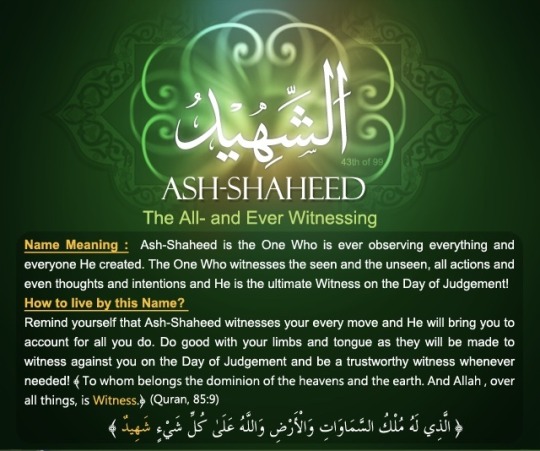#muhammed salah
Text

𝑎𝑟𝑡 𝑏𝑦 𝑀𝑢ℎ𝑎𝑚𝑚𝑒𝑑 𝑆𝑎𝑙𝑎ℎ
#muhammed salah#energy#healing#spiritualgrowth#law of attraction#spiritual development#spiritual awakening#art#soul#lovers#love#twin flames#soul mates#spiritual journey#spiritual connection#spirituality#soul connection#fire#flames#spiritual art#psychedelic art
533 notes
·
View notes
Text

"If you're going to love someone or something then don't be a slow leaking faucet----be a hurricane.”
― Shannon L. Alder
Art by Muhammed Salah
#literature#quote#reading#writing#book#novel#author#writer#books#shannon l. alder#art#artist#illustration#sketch#drawing#muhammed salah#love#passion#couple#embrace#smoke
268 notes
·
View notes
Text

Muhammed Salah
21 notes
·
View notes
Text

Art by Muhammed Salah
0 notes
Text
Mohamed Salah Legendary Goals Surprised The World
Mohamed Salah Legendary Goals Surprised The World
Mohamed Salah Legendary Goals Surprised The World Quality: 1080p60, HD SOFTWARE: – Premiere Pro CC 2019 (video …

View On WordPress
#amazing goals#amazing skills#egypt#egypt football#firmino#Football#goals#jota#Liverpool#liverpool 2020#liverpool 2021#mane#mohamed salah#Mohammed salah#muhammed salah#salah#salah 2020#salah 2021#salah all goals#salah assists#salah best#salah best goals#salah dribbling#salah egyptian king#salah goals#salah hikayesi#salah long range goal#Salah skills#salah vs#salah vs arsenal
0 notes
Text

تحزن على شيء فقدته .. فربما لو ملكته لكان الحزن أكبر
Grieve not upon what you have lost
perhaps your grievance would be greater, if you had attained it.
#islamicpost#makkah#bookish#reading#prophet muhammed pbuh#hijab#mosaic#islam#islamic quotes#salah#light academia#holy quran#quraan#islamic reminder#muslim#muslim tumblr#muslim ummah#writers and poets#muslimah
1K notes
·
View notes
Text
Mālik رحمه الله related that he had heard a person he trusted from the people of knowledge say:
“Indeed, the Messenger of Allāh ﷺ was shown the lifespans of the people before him or as Allāh willed in that regard. So it was as if he felt that the lifespans of his Ummah were shortened, that they would not reach the level of deeds of those before them due to the length of life.
Therefore, Allah gave him the Night of Decree, which is better than a thousand months.”
[Muwatta: 1145]
- gems from the salaf on telegram.
#islam#islamic#muslim#muslimah#allah#allahﷻ#duaa#quranquotes#muslim reminder#islamicpost#islamdaily#prophet muhammed pbuh#prophet muhammad#laylatul qadr#makkah#madinah#quran ayah#quran#holy quran#ramdan#ramadan#ramzan#allahuakbar#sunnah#love#salah#namaz#hijab#ummah#muslim ummah
23 notes
·
View notes
Text
The Life of The Prophet Muhammad(pbuh): Before His Birth, His Birth and His Childhood
The Famous Grandfathers of the Prophet
Undoubtedly, we do not have much knowledge on all the ancestors who carried the Master of the Universe’s light as a Divine trust on their foreheads. The ancestors about whom we have the most knowledge are the ones who are closest in time. Here we will take a short glance at their lives and personalities.
Qusai
Qusai, the fourth grandfatherof the Holy Prophet and whose real name was Zayd, was a very important figure. He had only one male sibling by the name of Zuhra.
From these two siblings, Qusai was granted the honor of bearing the noor that came down from Hazrat Adam. From childhood, Qusai garnered much attention for his talents and grew up to be one of the leading figures of Mecca. In a short time, he gained much reliability amongst the people of Mecca for his fair decisions as well as his skills in governance and administration. For this reason, the governance of Mecca was given to him. He divided Mecca into districts for the first time. He situated every tribe into the district that he allocated for them. The most important decisions of Mecca were discussed and decided in his home. Important tasks such as safeguarding the Ka’aba, providing water for and hosting the pilgrims of Hajj, erecting the flag at times of war, and governing the Meccan assembly, were entrusted in him. The first house that was across from the Ka’aba and whose door faced the Ka’aba was specially constructed for Qusai. This house was a parliament, like a type of governmental building or the state of the Meccan city, where all sorts of works and issues were discussed. Historically, Qusai’s residency was known as “Daru’n-Nadwa” and it found fame with this name. It was conserved until half a century after the Hijra (migration).
Qusai was loved and respected by everyone without exception. The noor belonging to the Master of the Universe that he carried on his forehead, made him beloved to and the bosom friend of the Meccan people.
In accordance with the custom, Qusay handed over the role of the family chieftain to his oldest son, Abduddar when he got old and said, “My Beloved son, I appoint you as the chief of this tribe”.
However, Abduddar did not possess the skills to undertake such a great duty. Throughout his life he was unable to fill his father’s place because the noor of the Patron of the Universe was not shining on his forehead, but was on his younger brother’s, Abd Manaf who had four sons: Hashim, Abdusshams, Muttalib, and Nawfal.
Hashim
Hashim is the grandfather of the Holy Prophet from the second generation.
Hashim was a tradesman; he was one of the notables of Mecca’s gentry. As the birth date of the Holy Prophet was nearing, the noor of the Holy Prophet on his forehead was shining even brighter. In addition, he had eminent virtues.
He was extremely generous. During a year of drought, no bread could be found. He had snow-white bread made from the pure wheat he brought from Damascus, cut several camels and sheep, and offered a huge feast composed of bread, meat, gravy, and broth to the whole of Meccan people.
Because Hashim was of high moral character, aptitude, was wise, generous, virtuous, was loved and respected by everyone, and had a noble personality, his name became the title for his family and posterity. For this reason, they termed this great lineage that includes our master of the Universe as the “Hashemites”.
Hashim had four sons: Shaiba (Abdulmuttalib), Asad, Abu Sayfi, and Nadla.
Hashim’s progeny continued from his sons Shaiba and Asad. Shaiba is the Holy Prophet’s grandfather from the first generation whereas Asad is the uncle of Hazrati Ali’s mother, Fatimah.
However, when Hunain, who came from Asad’s progeny, did not have any descendants; every Hashemite was descended from Abdulmuttalib’s branch, proliferated, and spread across the Earth.
Shaiba (Abdulmuttalib)
Shaiba is the Holy Prophet’s grandfather from the first generation. Since he was born with white hair, the name “Shaiba” was given to him; he gained fame with his nickname, Abdulmuttalib and was mentioned more by this name.
The story of how he was given this nickname:
Shaiba stayed with his maternal uncles in Medina during his childhood. One day he and his neighborhood friends were throwing arrows with the other children in a public square in Medina. Amongst all the children, he was easily distinguished by the noor belonging to the Master of the Universe that shone on his forehead. There, a crowd of grownups gathered to watch the children compete.
It was Shaiba’s turn to throw an arrow. He placed the arrow in the bow and stretched the bow in a confident manner. For a moment, he stopped breathing and unleashed the bow. The arrow that sprung from the bow hit its exact aim. When everyone looked at him with amazement, he brought the following words to his tongue through the happiness and excitement that he felt with this success:
“I am Hashim’s son. I am Sir Betha’s son. Of course my arrow will find its target”.
The adults that came to watch heard Shaiba’s commendatory words. One of Harith bin Abd-Manaf sons came close to him and learnt that he was Hashim’s sons by cross-examining. On his return to Mecca, this man explained the situation to Muttalib and remarked that it was not right for such a talented and intelligent child to be left in a foreign province.
Upon hearing this news, Muttalib immediately went to Medina and brought Shaiba to Mecca. As Muttalib was arriving to Mecca with Shaiba on the back of his saddle, they asked:
“Who is this child?”
Muttalib was afraid that this child would be affected with the evil eye so the words “my slave” came out of his mouth.
When he arrived home, his wife, Khadija, asked the same question. Once more, the answer was “my slave”.
The next day Shaiba began to roam the streets of Mecca with the new and beautiful clothes that his uncle bought for him. Everyone became curious about his identity and began to ask questions. Those who knew answered, “Abdulmuttalib” (Abdulmuttalib’s slave).
Despite his identity being later revealed, his nickname remained “Abdul-Muttalib” from that day on.
#allah#muslim#convert#revert islam#revert help#converthelp#muslimah#reverthelp#hijab#new muslim#new convert#how to convert to islam#convert to islam#welcome to islam#god#islam#quran#revert#convert islam#revert help team#help#islamhelp#prayer#salah#reminder#pray#dua#muhammed#new revert
11 notes
·
View notes
Text
JAMI'at-TIRMIDHI: The Book on Hunting: Hadith 1874
Narrated Abu Ad-Darda':
"The Messenger of Allah (ﷺ) prohibited eating the Mujath-thamah, and it is what is trapped and killed by arrows."
Reference : Jami` at-Tirmidhi 1473
In-book reference : Book 18, Hadith 11
English translation : Vol. 3, Book 16, Hadith 1473
#allah#muslim#convert#revert islam#revert help#converthelp#muslimah#reverthelp#hijab#new muslim#new convert#how to convert to islam#convert to islam#welcome to islam#god#islam#quran#revert#convert islam#revert help team#help#islamhelp#prayer#salah#reminder#pray#dua#muhammed#new revert
3 notes
·
View notes
Text

𝐷𝑜𝑛'𝑡 𝑗𝑢𝑠𝑡 𝑓𝑎𝑙𝑙 𝑖𝑛 𝑙𝑜𝑣𝑒. 𝐺𝑟𝑜𝑤 𝑖𝑛 𝑙𝑜𝑣𝑒.
𝑎𝑟𝑡 𝑏𝑦 𝑀𝑢ℎ𝑎𝑚𝑚𝑒𝑑 𝑆𝑎𝑙𝑎ℎ
#Muhammed Salah#art#spiritual art#spiritual connection#healing#energy#soul#spiritual awakening#spiritualgrowth#spiritual development#law of attraction#good vibes#love#stars#universe#divine masculine#divine feminine#cosmos#lovers#energy connection
636 notes
·
View notes
Text
والعصر
By Al-Asr
إن اﻻنسان لفي…
Verily man is in…
خسر
(Khusr), which means in loss and destruction…
youtube
Islamic Reminder
Prophet Mohammad (SAWA) said
إِذَا صَلَّيْتَ صَلاةً فَصَلِّ صَلَاةَ مُوَدِّعٍ
Perform your prayer as if it is your last one.
Bihar al-Anwar, vol. 66, pg. 408
#subhanallah#alhamdulillah#allahuakbar#sabr#salah#good deeds#muslim#islamic#islamdaily#islamic reminders#astaghfirullah#la ilaha illa allah#al fatihah#Al Asr#ya Allah#prophet muhammed pbuh#Youtube
4 notes
·
View notes
Text


Muhammed Salah
11 notes
·
View notes
Text

Allah calls Himself Ash-Shaheed— The All-and-Ever Witnessing— on 18 occasions in the Quran. Ash-Shaheed is the witness whose sight no one can escape. He is the One with full knowledge of all matters, witnessing the apparent and hidden, anywhere, any time. Ash-Shaheed is the witness and observer of all creation, thoughts, and actions, and the ultimate witness on the Day of Judgment!
The Witness, the Testifier, the Certifier
Shaheed comes from the root sheen-haa-daal, which points to three main meanings. The first meaning is “to bear witness.” The second meaning is to offer testimony, and the third is to have knowledge of something.
This root appears 160 times in the Quran in nine derived forms. Examples of these forms include yashhadu (“to testify”), ashhidoo (“to take witness”), shahaadati (“the seen”) and shuhadaa (“witnesses, martyrs”).
Shaheed refers to Allah’s awareness of everything; He hears every sound, loud and quiet, and sees the small and the large. In addition, He is the One who will testify for or against His servants for their deeds.
Ash-Shaheed Himself says:
Say: What thing is the greatest witness? Say: Allah is shaheed between you and I; this Qur’an has been revealed to me that I may warn therewith – you and whomsoever it may reach. [Quran, 6:19]
Allah is Witness over all things. [Quran, 58: 6] Allah is sufficient as Witness. [Quran, 4: 79]
Allah (Himself) is Witness that there is no god save Him. And the angels and the people of knowledge (too are witnesses). [Quran, 3:18]
A Scene of the Souls
When Allah created Adam, He wiped Adam’s back and every person that He will create from him until the Day of Resurrection fell out from his back. [At-Tirmidhi and Al-Haakim] Allah stated that He brought the descendants of Adam out of their fathers’ loins, and they testified against themselves that Allah is their Lord and King and that there is no deity worthy of worship except Him. Allah then said,(and made them testify as to themselves (saying): “Am I not your Lord” They said: “Yes!”) [Tafseer ibn Katheer]
This was your first testimony and it means we will have no excuse on the Day of Judgement!
It will be said to a man from the people of the Fire on the Day of Resurrection, “If you owned all that is on the earth, would you pay it as ransom’ He will reply, `Yes.’ Allah will say, `I ordered you with what is less than that, when you were still in Adam’s loins, that is, associate none with Me (in worship). You insisted that you associate with Me (in worship).” [Tafseer ibn Katheer]
How Can You Live By This Name?
1. Say the sahahda, live the shahada. The Prophet salallahu ‘alayhi wa sallam said: Man shahida an la ilaha illallah dakhala al-jannah – Whoever witnesses that there is no god but Allah alone enters Paradise.[Saheeh Muslim]. Your testimony of faith in Allah is something you not only utter, but must live by. When you say I bear witness there is no god but Allah it means that in your talk and actions, in your house or outside you show that you love Allah more than anyone else, you accept Him as your Creator, Master and Ruler of the universe, that you worship Him alone in all matters and not your desires or others’ directions. Next time when you say the shahada in your prayer, reflect upon the meaning. Increase in saying la ilaha illallah to renew your emaan!
2. Trust in Ash-Shaheed. Ash-Shaheed says in this beautiful soothing ayah: So wait patiently for your Lord’s decree, for surely you are in Our sight. [Quran, 52: 48] Rest assured that any unjust treatment by the hands of others you go through, slander, gossip or abuse, Ash-Shaheed is your Witness and you will get justice.
3. Remember that you are a servant. It’s sometimes easy to shout at your family or children inside the house, or even oppress someone when you are in a position of authority over them. Remind yourself in each situation, wherever you are, whoever you talk to, whatever position you have, that you are a servant of Allah. Ash-Shaheed is witnessing every step you take and will you to account. Use this tip: when you are about to do something wrong, look up at the sky and imagine Ash-Shaheed watching you!
4. Don’t make your limbs testify against you.Use your tongue for speech beloved by Ash-Shaheed, your eyes to read the Quran, your limbs to pray to Him as they will all testify as what you used them for! The Prophet salallahu ‘alayhi wa sallam said: I was amazed at how a servant will dispute with his Lord on the Day of Resurrection. He will say, “My Lord, did You not promise me that you would not treat me unjustly” Allah will say, “Yes.” The man will say, “I will not accept any witness against me except from myself.” Allah will say, “Is it not sufficient that I and the angels, the noble scribes, are witnesses” These words will be repeated several times, then a seal will be placed over his mouth and his organs (or limbs) will speak about what he used to do. Then he will say, “Away with you! It was only for your sake that I was arguing!”)” [Muslim and An-Nasa’i]
5. Always stand up for the truth. Always stand up for the truth in your testimonies, even if it is against yourself! Sometimes it is hard to admit a mistake, or testifying for the truth might even endanger you, but know this characteristic is one of true honour of a believer, which earns you not just a place in Paradise, but a place of honour! And those who are in their testimonies upright and those who [carefully] maintain their prayer: they will be in gardens, honoured. [Quran, 70:33-35]
Wallahu ta’alaa ‘alem.
O Allah, Ash-Shaheed, we know that You witness all things. Guide us to live by the shahada and make us utter the testimony of faith on our deathbed. Help us remember that You are witnessing us, and make this awareness an inspiration for us to increase our good deeds. Make us always stand up for the truth and join us with the prophets and shuhadaa in the highest Paradise, ameen!
#allah#islam#revert help team#asma al husna#revert help#muslim#ayat#daily#allah’s name#dua#pray#prayer#salah#muhammed#revert#convert#convert help#convert islam#how to convert to islam#become a muslim#welcome to islam#prophet#god
11 notes
·
View notes






